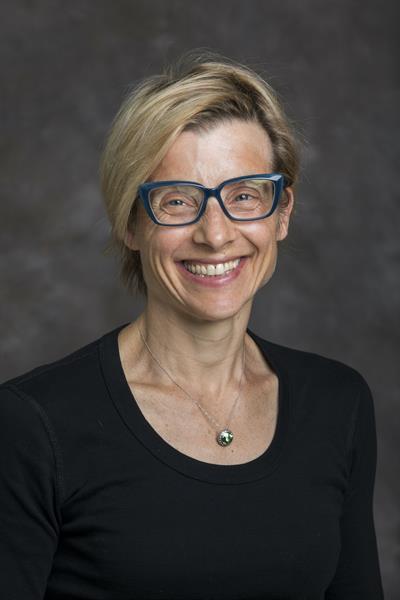
Luisa Chiesa
(617) 627-4575
212 College Avenue, Room 168

Research/Areas of Interest
sustainable energy, superconducting materials, materials science
Education
- Ph.D., Massachusetts Institute of Technology, United States, 2009
- M.S., Massachusetts Institute of Technology, Cambridge, United States, 2006
- B.S., Universita' degli Studi, Milano, Italy, 2001
Biography
Luisa Chiesa is a Professor in the Department of Mechanical Engineering at Tufts School of Engineering. Her teaching interests include sustainable energy, thermodynamics and applied thermodynamics, cryogenic and superconductivity, strength of materials, mechanics of materials, and material science. Her primary research interest is superconducting materials for large powerful magnets to be used in particle accelerators, medical devices, and fusion energy machines. Superconductors are exciting materials that are able, under the right conditions, to carry large currents with no resistive dissipation. This characteristic makes them well suited to be used for electromagnets, to reduce the overall size and cost of the devices that employ such materials. Chiesa's lab specializes in electrical and mechanical measurements of those materials.
Luisa Chiesa's primary research area is superconducting materials for energy application. Her current research focus is the electro-mechanical behavior of superconducting materials for large magnets used in fusion power devices. Fusion reactors could play a key role in the power production of future generations. Powerful superconducting magnets are used to confine the plasma created in the fusion vessel. During operations, these magnets are subjected to extremely large forces that could reduce the overall performance of the superconducting material they are made of, jeopardizing the overall performance of the machine. To succeed in building such systems, it is critical to investigate the electro-mechanical properties of superconducting materials. Experimental work in this subject is performed at Tufts University, in collaboration with several national laboratories.
This research is also of interest for other energy applications, such as superconducting magnetic energy storage (SMES) and superconducting transmission lines. These technologies could play a significant role in power storage and delivery, which are the backbone for the successful implementation of renewable energy sources. As these energy sources (solar and wind, in particular) are inherently intermittent, efficient ways of storing and delivering energy are necessary components to improve their reliability. The measurements performed in Chiesa's laboratory are unique and focus mainly on superconductors, but the equipment available can be used to test different categories of materials.
Luisa Chiesa's primary research area is superconducting materials for energy application. Her current research focus is the electro-mechanical behavior of superconducting materials for large magnets used in fusion power devices. Fusion reactors could play a key role in the power production of future generations. Powerful superconducting magnets are used to confine the plasma created in the fusion vessel. During operations, these magnets are subjected to extremely large forces that could reduce the overall performance of the superconducting material they are made of, jeopardizing the overall performance of the machine. To succeed in building such systems, it is critical to investigate the electro-mechanical properties of superconducting materials. Experimental work in this subject is performed at Tufts University, in collaboration with several national laboratories.
This research is also of interest for other energy applications, such as superconducting magnetic energy storage (SMES) and superconducting transmission lines. These technologies could play a significant role in power storage and delivery, which are the backbone for the successful implementation of renewable energy sources. As these energy sources (solar and wind, in particular) are inherently intermittent, efficient ways of storing and delivering energy are necessary components to improve their reliability. The measurements performed in Chiesa's laboratory are unique and focus mainly on superconductors, but the equipment available can be used to test different categories of materials.